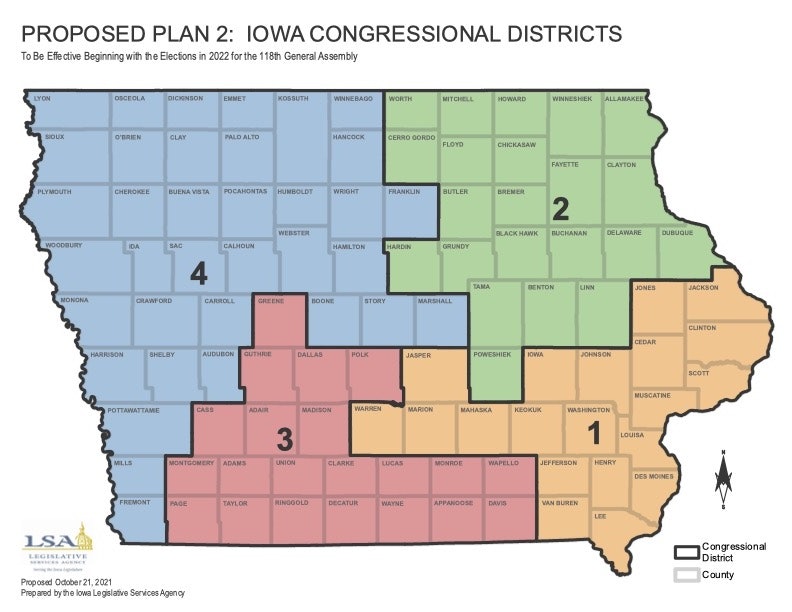U.S. Representative Mariannette Miller-Meeks has a clear shot at the Republican nomination in Iowa’s new first Congressional district, after her only GOP opponent was knocked off the ballot on March 29.
The State Objection Panel, consisting of Secretary of State Paul Pate, Attorney General Tom Miller, and State Auditor Rob Sand, unanimously sustained an objection to Kyle Kuehl’s candidacy.
Alan Ostergren, an attorney who has worked for the Miller-Meeks campaign and other Iowa Republican committees, wrote the objection on behalf of three voters living in IA-01. On many of Kuehl’s nominating petitions, the campaign had written “US-1” on the line for “Office sought.” That line should have read “U.S. House” or “U.S. Representative” or “member of Congress,” with “District 1” or “IA-01” or “first district” on the line below, which reads “Office District (if any).”
Iowa Code requires that the office sought (and the district number, if applicable) be listed on nominating petitions, and the 2022 primary election candidate guide from the Iowa Secretary of State’s office states, “Signatures cannot be counted on petition pages missing the following information,” including the office sought and district, if any.
Other pages of Kuehl’s petitions had incomplete voter addresses, or included signatures from voters living in more than one county.
After excluding those pages, Kuehl fell below the total number of valid signatures required for U.S. House candidates (1,726) and also failed to submit at least 47 signatures from at least half the counties in the district.
Kuehl did not attempt to refute the challenge in writing, attend the panel’s meeting, or send a representative to speak on his behalf. Molly Widen, Pate’s legal counsel, said Kuehl had emailed her on March 28 saying he intended to withdraw his candidacy and would not contest the objection.
Deputy Attorney General Matt Gannon advised the panel that the deadline for Kuehl to withdraw passed on March 23 (which was 76 days before the June 7 primary). For that reason, Gannon recommended that the panel sustain the objection to Kuehl’s petitions without considering the points raised individually. The panel members did so without further discussion.
Kuehl’s campaign had raised little money and was not positioned to threaten Miller-Meeks in the GOP primary. So why did Ostergren go to so much trouble to disqualify the candidacy?
Some conservatives have long distrusted Miller-Meeks, and during her first two years in Congress, she has cast several votes that might anger hard-core Trumpers (see here, here, and here). Any other name on the ballot might attract a significant protest vote, and even 20 or 25 percent for Kuehl might have been noticed.
Having been certified the winner by just six votes after the 2020 general election, Miller-Meeks won’t want to project any weakness coming out of this year’s primary.
State Representative Christina Bohannan was the only Democrat to file for the IA-01 primary ballot and will face Miller-Meeks in the November election.
The new IA-01 comprises 20 counties, mostly in southeast Iowa.


